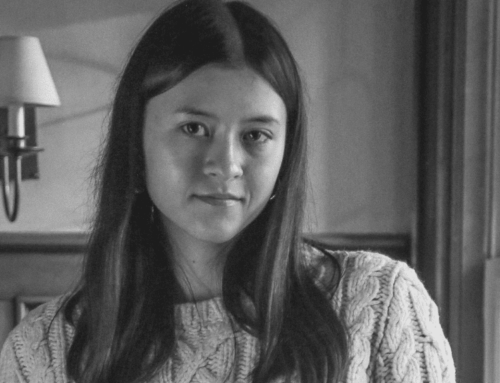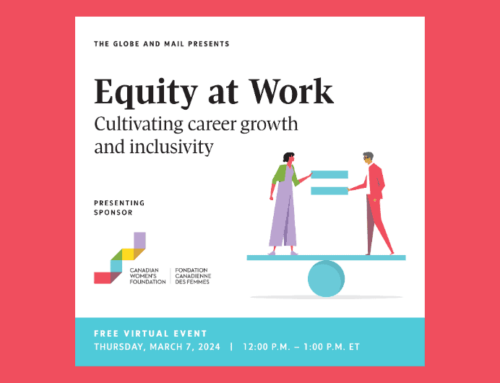Since the #MeToo Movement grabbed headlines, many have woken up to the realities of sexual assault and harassment. For too many women, the barriers to leaving an abusive relationship remain steep, and that includes older women.
Who do you picture in your mind when you consider sexual violence against older women? Do you see a frail 80-year old reclined in a sterile long-term care bed who, due to loss of language associated with dementia, is powerless to explain that a care aid just assaulted her? To be sure: this woman exists. But sexual violence like this against older women affects women from many different backgrounds. #MeToo has benefited many, but not all women have access to the same platforms to share their stories and find their voice.
Older women identify violence as one of the most pressing barriers to their well-being. And they also say sexual violence has an enduring impact across their lives: older women survivors include not only women who were recently assaulted, but also, for example, Indigenous women who experienced abuse in residential schools, and immigrant women who endured decades of partner violence. Although the limited studies on the abuse of older women suggest sexual violence occurs predominantly in care homes, and reported court decisions indicate that offenders are usually strangers, feminist legal theorists posit these findings mostly indicate under-reporting, highlighting the need to figure out how to better support older women survivors.
Barriers to Accessing Support
Recently, we invited a group of older immigrant women who have survived violence to take action on an urgent barrier to their well-being. They pointed the finger at the family law system and created this video. They shared the many ways the system fails to support them, from lack of legal aid, to lawyers who miss appointments, and judges who fail to create an environment where women can feel safe to tell their stories. Our legal system is in crisis. These obstacles confront women of all ages.
Leaving the place where abuse happens can be a gateway to services; however, it can be especially challenging for an older woman to leave home, according to a report published by the Atira Women’s Resource Society:
- She may be receiving care or providing care for a family member—including the abuser. She may value her responsibility to provide care above her right to safety, and wonder how her care and mobility needs will be met if she leaves her home.
- Loss of home may be a terrifying prospect. She risks being placed in a long-term care facility, and losing both independence and community.
- The abuser may have threatened to remove her decision-making abilities. She may face stigma about dementia, and a lack of understanding when it comes to how to support her cognitive capacity.
- Values and beliefs about marriage, privacy, and loyalty may make it hard to reach out for help. She may lack family support, and risk loss of access to grandchildren and other family relationships that make life meaningful for her.
Promising Practices for Supporting Older Women
In 2014, we consulted with service providers across the country who work with older women who have experienced violence. The most recurring theme for how they adapt practice to better assist older women is enhanced outreach to support women where they live. Atira Women’s Resource Society’s guide for housing women who are older and fleeing abuse offers the following strategies:
- Nurture an environment that values older women
- Develop outreach strategies tailored to older women
- Provide individualized, woman-centred support for older women
- Focus on relationships and relationship-building for older women
- Focus on safety for older women
- Facilitate access to health care for older women
- Develop strategic partnerships to help older women get the
- services they want and need
- Provide older women with more time to transition
- Support older women after they leave the transition house
- Integrate evaluation into practice, including documenting use of services by older women
- Work towards system change
As discussed in both reports of the Older Women’s Dialogue Project, experience is deeply impacted by factors such as poverty and access to pensions, disability and access to healthcare and home support, and racism, ageism, and discrimination. Experience is “not shaped by age and gender alone, but also by many overlapping aspects of identity,” according to the Canadian Centre for Elder Law.
As a result, there is no one size fits all approach to supporting older women. The answer lies in learning about each woman’s unique and complex needs, respecting the relationships that matter to her, and meeting her where she’s at.
Learn More:
- How Gender-Based Violence Impacts Mental Health
- 3 Reasons Seniors are Facing More Debt than Ever – and May Be Vulnerable to Abuse
- How to Support Survivors of Sexual Violence
Take Action:
- Sign up for our e-newsletter to have our latest stories and resources sent to your inbox.
- Follow us on Facebook and Twitter to join a national conversation about empowering girls.






